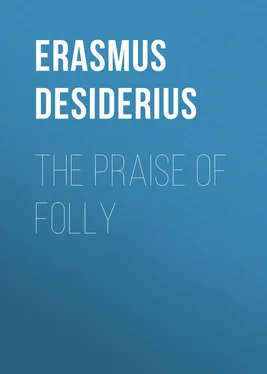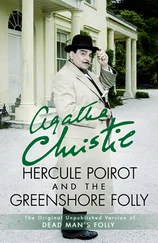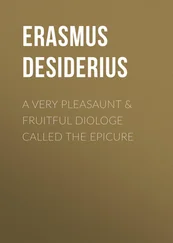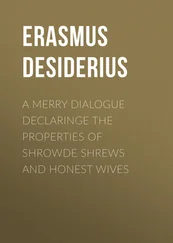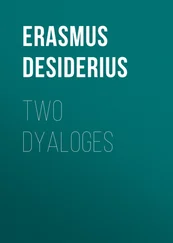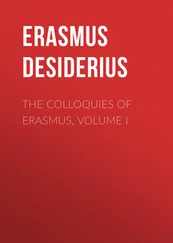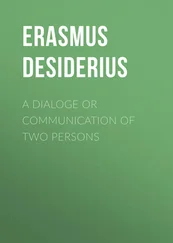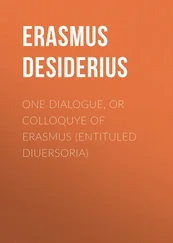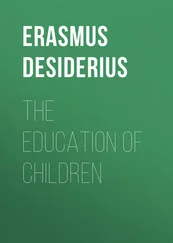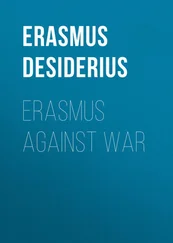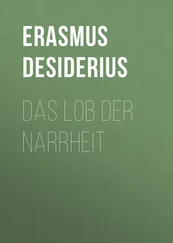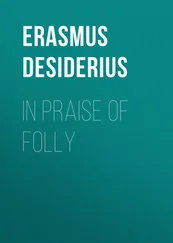Lastly, since it is the chief point of happiness "that a man is willing to be what he is," you have further abridged in this my Self-love, that no man is ashamed of his own face, no man of his own wit, no man of his own parentage, no man of his own house, no man of his manner of living, nor any man of his own country; so that a Highlander has no desire to change with an Italian, a Thracian with an Athenian, nor a Scythian for the Fortunate Islands. O the singular care of Nature, that in so great a variety of things has made all equal! Where she has been sometimes sparing of her gifts she has recompensed it with the more of self-love; though here, I must confess, I speak foolishly, it being the greatest of all other her gifts: to say nothing that no great action was ever attempted without my motion, or art brought to perfection without my help.
Is not war the very root and matter of all famed enterprises? And yet what more foolish than to undertake it for I know what trifles, especially when both parties are sure to lose more than they get by the bargain? For of those that are slain, not a word of them; and for the rest, when both sides are close engaged "and the trumpets make an ugly noise," what use of those wise men, I pray, that are so exhausted with study that their thin, cold blood has scarce any spirits left? No, it must be those blunt, fat fellows, that by how much the more they exceed in courage, fall short in understanding. Unless perhaps one had rather choose Demosthenes for a soldier, who, following the example of Archilochius, threw away his arms and betook him to his heels e'er he had scarce seen his enemy; as ill a soldier, as happy an orator.
But counsel, you'll say, is not of least concern in matters of war. In a general I grant it; but this thing of warring is not part of philosophy, but managed by parasites, panders, thieves, cut-throats, plowmen, sots, spendthrifts, and such other dregs of mankind, not philosophers; who how unapt they are even for common converse, let Socrates, whom the oracle of Apollo, though not so wisely, judged "the wisest of all men living," be witness; who stepping up to speak somewhat, I know not what, in public was forced to come down again well laughed at for his pains. Though yet in this he was not altogether a fool, that he refused the appellation of wise, and returning it back to the oracle, delivered his opinion that a wise man should abstain from meddling with public business; unless perhaps he should have rather admonished us to beware of wisdom if we intended to be reckoned among the number of men, there being nothing but his wisdom that first accused and afterwards sentenced him to the drinking of his poisoned cup. For while, as you find him in Aristophanes, philosophizing about clouds and ideas, measuring how far a flea could leap, and admiring that so small a creature as a fly should make so great a buzz, he meddled not with anything that concerned common life. But his master being in danger of his head, his scholar Plato is at hand, to wit that famous patron, that being disturbed with the noise of the people, could not go through half his first sentence. What should I speak of Theophrastus, who being about to make an oration, became as dumb as if he had met a wolf in his way, which yet would have put courage in a man of war? Or Isocrates, that was so cowhearted that he dared never attempt it? Or Tully, that great founder of the Roman eloquence, that could never begin to speak without an odd kind of trembling, like a boy that had got the hiccough; which Fabius interprets as an argument of a wise orator and one that was sensible of what he was doing; and while he says it, does he not plainly confess that wisdom is a great obstacle to the true management of business? What would become of them, think you, were they to fight it out at blows that are so dead through fear when the contest is only with empty words?
And next to these is cried up, forsooth, that goodly sentence of Plato's, "Happy is that commonwealth where a philosopher is prince, or whose prince is addicted to philosophy." When yet if you consult historians, you'll find no princes more pestilent to the commonwealth than where the empire has fallen to some smatterer in philosophy or one given to letters. To the truth of which I think the Catoes give sufficient credit; of whom the one was ever disturbing the peace of the commonwealth with his hair-brained accusations; the other, while he too wisely vindicated its liberty, quite overthrew it. Add to this the Bruti, Casii, nay Cicero himself, that was no less pernicious to the commonwealth of Rome than was Demosthenes to that of Athens. Besides M. Antoninus (that I may give you one instance that there was once one good emperor; for with much ado I can make it out) was become burdensome and hated of his subjects upon no other score but that he was so great a philosopher. But admitting him good, he did the commonwealth more hurt in leaving behind him such a son as he did than ever he did it good by his own government. For these kind of men that are so given up to the study of wisdom are generally most unfortunate, but chiefly in their children; Nature, it seems, so providently ordering it, lest this mischief of wisdom should spread further among mankind. For which reason it is manifest why Cicero's son was so degenerate, and that wise Socrates' children, as one has well observed, were more like their mother than their father, that is to say, fools.
Конец ознакомительного фрагмента.
Текст предоставлен ООО «ЛитРес».
Прочитайте эту книгу целиком, на ЛитРес.
Безопасно оплатить книгу можно банковской картой Visa, MasterCard, Maestro, со счета мобильного телефона, с платежного терминала, в салоне МТС или Связной, через PayPal, WebMoney, Яндекс.Деньги, QIWI Кошелек, бонусными картами или другим удобным Вам способом.
